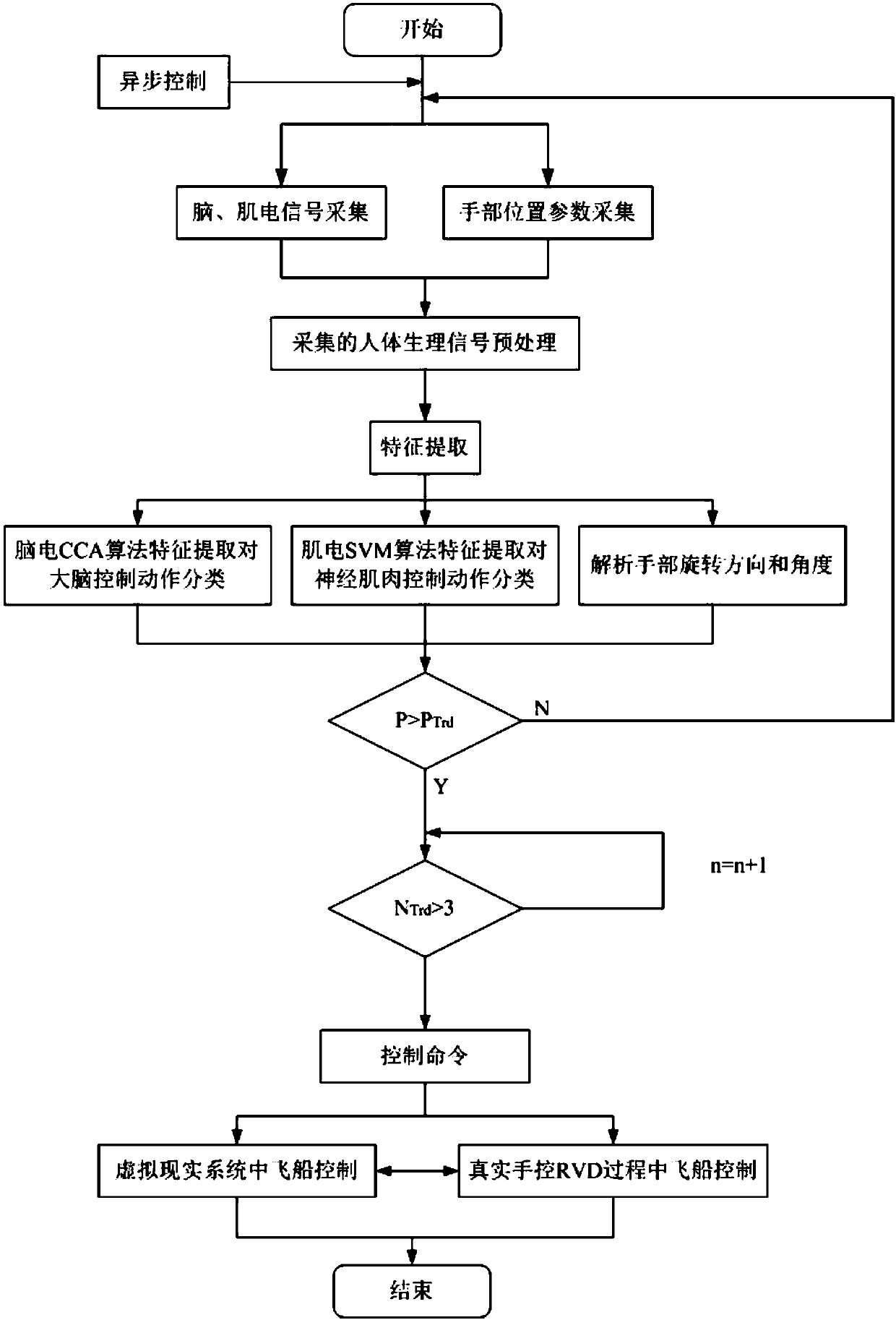Rendezvous and docking method of spacecraft based on virtual reality and multimodal man-machine interface
A technology of rendezvous and docking and virtual reality, applied in the field of manned spaceflight, can solve the problems of astronauts' heavy workload and psychological load, space orientation, decline in direction recognition ability, non-intuitive human-computer interaction interface, etc., and achieve dynamic advantages Combination, rapid learning and mastery, and the effect of improving judgment
- Summary
- Abstract
- Description
- Claims
- Application Information
AI Technical Summary
Problems solved by technology
Method used
Image
Examples
Embodiment Construction
[0042]The specific embodiments of the present invention will be described in detail below in conjunction with the accompanying drawings, but it should be understood that the protection scope of the present invention is not limited by the specific embodiments.
[0043] figure 1 is a schematic diagram of the system of the present invention. The system mainly includes: shipboard computer system, helmet, data gloves and wristband, bluetooth module.
[0044] The on-board computer system is composed of an aircraft virtual model module, an aircraft position and attitude calculation module, a human physiological signal processing module and an airship control module (not shown in the figure). Its main function is to pre-establish the virtual models of the two aircraft (the docking aircraft and the target aircraft) through the collection and analysis of the three-dimensional data of the two aircraft before the flight mission, and store them on the onboard computer; based on the images...
PUM
 Login to View More
Login to View More Abstract
Description
Claims
Application Information
 Login to View More
Login to View More - R&D
- Intellectual Property
- Life Sciences
- Materials
- Tech Scout
- Unparalleled Data Quality
- Higher Quality Content
- 60% Fewer Hallucinations
Browse by: Latest US Patents, China's latest patents, Technical Efficacy Thesaurus, Application Domain, Technology Topic, Popular Technical Reports.
© 2025 PatSnap. All rights reserved.Legal|Privacy policy|Modern Slavery Act Transparency Statement|Sitemap|About US| Contact US: help@patsnap.com



